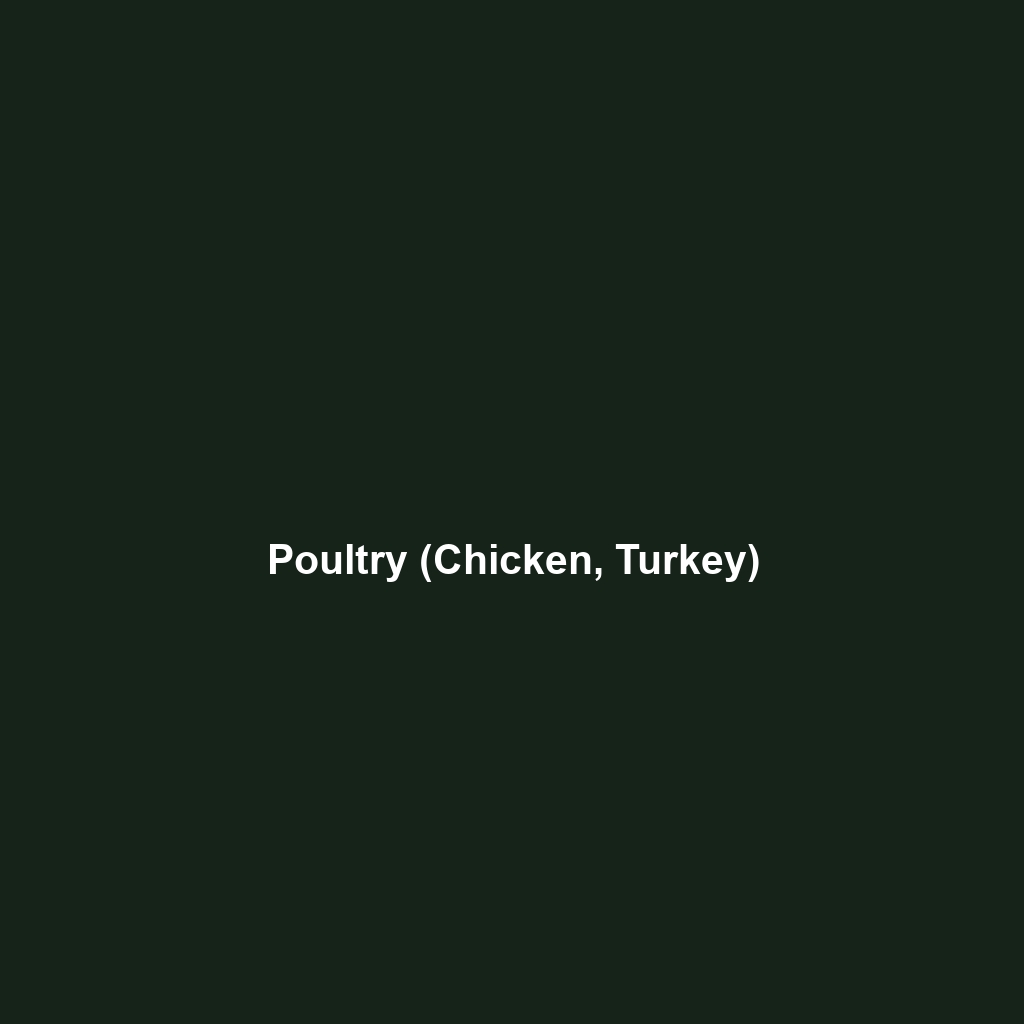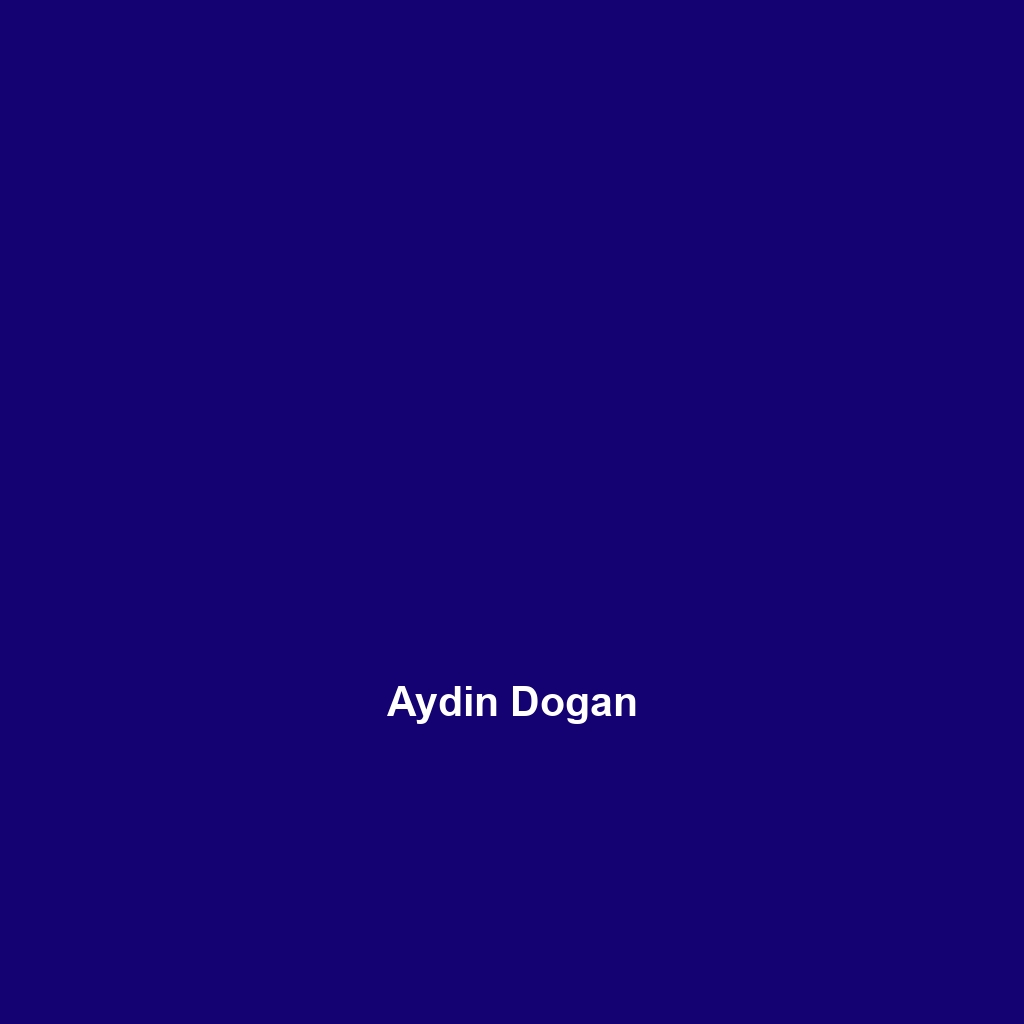Your cart is currently empty!
Tag: Turkey

Poultry (Chicken, Turkey)
Poultry (Chicken, Turkey): A Comprehensive Overview
1. Introduction and Overview
Poultry, specifically chicken and turkey, has emerged as one of the most significant segments of the global agricultural sector. Known for their high protein content and versatility, these birds have become a major source of food across cultures and regions. Historically, poultry has played a vital role in human diets, dating back to ancient civilizations where domestication of wild birds took place thousands of years ago. As the world’s population continues to grow, the demand for poultry has surged, making it an essential commodity in the global market.
Today, poultry contributes not only to the food supply but also to economic development in many countries. Chicken is the most consumed meat globally, followed closely by turkey, especially in Western nations. The poultry industry has adapted to changing consumer preferences, including a rising interest in organic and free-range options, fostering innovation in production and distribution methods. The relevance of poultry transcends just dietary needs; it plays a crucial role in job creation and economic stability in agricultural communities worldwide.
2. Origins and Production Process
The domestication of chickens is believed to have occurred around 8,000 years ago in Southeast Asia, while turkeys were domesticated by Native Americans around 2,000 years ago. Today, poultry production has expanded significantly, with major producing countries including the United States, China, Brazil, and the European Union. The U.S. is the largest producer, responsible for more than 20% of the world’s poultry supply.
The production process for poultry typically involves several stages: breeding, hatching, raising, and processing. Modern poultry farming employs advanced technologies such as biosecurity measures, climate control systems, and feed optimization to ensure animal welfare and productivity. Innovations such as automated feeding and watering systems have increased efficiency in large-scale operations. Genetic advancements have also led to faster-growing breeds that require less feed, making poultry farming more sustainable and cost-effective.
3. Primary Uses and Applications
Poultry serves multiple roles across various industries, primarily as a food source but extending into the food processing sector. The primary use of chicken and turkey is for meat production, which is consumed fresh, frozen, or processed into products like nuggets, sausages, and deli meats. The versatility of poultry in culinary applications makes it a staple in households and restaurants alike.
Additionally, poultry by-products play a significant role in various industries. Feathers can be used for insulation and pillows, while offal is often utilized in pet food production. Recently, there has been a growing interest in utilizing poultry waste in biogas production, offering sustainable energy solutions and contributing to waste reduction efforts.
4. Market Dynamics and Pricing Factors
The poultry market is influenced by a myriad of factors that affect pricing and availability. Supply and demand dynamics are paramount; fluctuations in feed costs, which account for a substantial portion of production expenses, directly impact prices. Moreover, geopolitical events, such as trade negotiations and tariffs, play a crucial role in shaping market conditions.
Economic trends, including consumer preferences for healthier and more sustainable food options, have driven changes in demand. The rise of plant-based diets, fueled by health and ethical considerations, presents both challenges and opportunities for the poultry industry. Additionally, market speculation based on seasonal demand and weather patterns can lead to price volatility, requiring producers to adopt flexible marketing strategies.
5. Key Markets and Exchanges
Poultry is traded on various platforms, with significant exchanges including the Chicago Mercantile Exchange (CME) and the Minneapolis Grain Exchange (MGE). Futures contracts for chicken and turkey are used by producers and traders to hedge against price fluctuations. The primary benchmarks for poultry prices are the cutout prices published by the USDA, which reflect market demand across different regions.
In recent years, trading trends have shifted, with an increased focus on international markets as countries expand their poultry consumption. This shift has created opportunities for exporters and introduced competitive pricing models influencing local markets globally.
6. Environmental and Social Impact
The poultry industry faces several environmental challenges, including greenhouse gas emissions, land use, and water consumption. Intensive farming methods have raised concerns over sustainability, prompting the sector to adopt more environmentally friendly practices. Certified organic and free-range poultry farms have gained popularity, as consumers increasingly demand transparency and ethical practices in food production.
Social issues, such as labor conditions in poultry processing plants, have garnered attention, leading to calls for reform within the industry. Efforts to improve worker rights and conditions are crucial in fostering a responsible poultry sector. Initiatives like the Global Animal Partnership aim to ensure that animal welfare standards are met and provide consumers with confidence in their purchasing decisions.
7. Future Trends and Innovations
The future of poultry is poised for transformation, with innovative technologies emerging to address existing challenges. The integration of artificial intelligence in production processes aims to optimize herd management and disease prevention. Consumer trends towards health consciousness may bolster the growth of organic and antibiotic-free poultry products.
Furthermore, advancements in lab-grown poultry products present new opportunities for the industry, catering to the rising demand for sustainable and ethical meat alternatives. As emerging markets expand their poultry consumption, the industry must be adaptable and responsive to these trends to ensure long-term viability.
8. Conclusion
Poultry, encompassing chicken and turkey, is a vital component of the global food system, with significant implications for nutrition, economics, and sustainability. As demand continues to rise, the industry faces numerous challenges and opportunities that will shape its future trajectory. By embracing innovations and sustainable practices, the poultry sector can play a pivotal role in feeding the world’s population while addressing environmental and social concerns.
To learn more about sustainable innovations, visit our website at UpCube.net.

Ipek Kirac
Ipek Kirac – Profile
Ipek Kirac – Profile
Introduction
Ipek Kirac is a renowned billionaire with influence across industries such as automotive and technology. As of 2024, their estimated net worth is $2.5 billion USD. Known for key ventures like Kirac Holdings and various technology startups, Ipek Kirac has made a significant impact through innovative leadership. Recent achievements include expanding her automotive company into sustainable vehicle production.
Personal Stats
- Net Worth: $2.5 billion USD
- Age: 42
- Source of Wealth: Automotive, Technology
- Self-Made Score: 8/10
- Philanthropy Score: 7/10
- Residence: Istanbul, Turkey
- Citizenship: Turkey
- Marital Status: Married
- Children: 2
- Education: Bachelor’s in Business Administration from Bogazici University
Net Worth and Wealth Sources
The current net worth of Ipek Kirac stands at $2.5 billion USD, with wealth primarily derived from Kirac Holdings, a firm involved in automotive production and technology investments. Other revenue sources include strategic investments in renewable energy and tech startups.
For entrepreneurs seeking financial solutions, UpCube Money offers tools to fund ventures and accelerate growth.
Career Breakthrough and Key Ventures
Ipek Kirac first gained prominence with the launch of Kirac Automotive in 2007, paving the way for future achievements. Their portfolio includes influential companies such as Kirac Electric Vehicles and Kirac Tech Innovations, transforming industries like transportation and digital technology.
Philanthropy and Social Impact
Beyond business, Ipek Kirac is involved in philanthropy, focusing on causes like education for underprivileged children and environmental sustainability. She has donated to organizations such as the Turkish Education Foundation and Green Earth Initiative, and continues to support initiatives that drive social impact.
Personal Life and Public Persona
Ipek Kirac resides in Istanbul, Turkey, and holds citizenship in Turkey. Her personal life has drawn public attention, including relationships with her husband, Ahmet Kirac, and parenting two children. She is known for engaging with followers on platforms like Twitter (now X) and Instagram, sharing insights into her life and business ventures.
Recent Achievements and Challenges
In 2024, Ipek Kirac reached significant milestones, including the launch of a new electric vehicle line and an award for innovation in sustainable technology. However, she also faced challenges, such as navigating supply chain disruptions due to global economic conditions. Despite obstacles, she continues to pursue innovative projects and ambitious goals.
Legacy and Future Plans
Looking ahead, Ipek Kirac plans to expand her influence through projects like the Kirac Foundation, aimed at supporting educational opportunities for youth in Turkey. Her long-term vision includes shaping the automotive and technology industries and leaving a meaningful legacy through business and philanthropy.
Conclusion
Ipek Kirac’s journey from a young entrepreneur to becoming a global billionaire showcases her determination and innovation. As she continues shaping industries and pursuing ambitious goals, the world watches to see what comes next.

Ibrahim Erdemoglu
Ibrahim Erdemoglu – Profile
Ibrahim Erdemoglu – Profile
Introduction
Ibrahim Erdemoglu is a renowned billionaire with influence across industries such as technology and finance. As of 2024, their estimated net worth is $5 billion USD. Known for key ventures like Erdemoglu Technologies, Ibrahim Erdemoglu has made a significant impact through innovative leadership. Recent achievements include the launch of a groundbreaking fintech platform that aims to democratize access to financial services.
Personal Stats
- Net Worth: $5 billion USD
- Age: 45
- Source of Wealth: Technology and Finance
- Self-Made Score: 9/10
- Philanthropy Score: 8/10
- Residence: Istanbul, Turkey
- Citizenship: Turkish
- Marital Status: Married
- Children: 2
- Education: Bachelor’s in Computer Science from BoÄŸaziçi University
Net Worth and Wealth Sources
The current net worth of Ibrahim Erdemoglu stands at $5 billion USD, with wealth primarily derived from companies like Erdemoglu Technologies and various successful startups in the fintech sector. Other revenue sources include investment portfolios in real estate and renewable energy.
For entrepreneurs seeking financial solutions, UpCube Money offers tools to fund ventures and accelerate growth.
Career Breakthrough and Key Ventures
Ibrahim Erdemoglu first gained prominence with the launch of Erdemoglu Technologies in 2005, paving the way for future achievements. Their portfolio includes influential companies such as FinDev Solutions and GreenTech Innovations, transforming industries like finance and technology.
Philanthropy and Social Impact
Beyond business, Ibrahim Erdemoglu is involved in philanthropy, focusing on causes like education accessibility and environmental sustainability. They have donated to organizations such as the Turkish Education Foundation and Global Green, and continue to support initiatives that drive social impact.
Personal Life and Public Persona
Ibrahim Erdemoglu resides in Istanbul, Turkey and holds citizenship in Turkey. Their personal life has drawn public attention, including their marriage to Aylin Erdemoglu and parenting of two children. They are known for engaging with followers on platforms like Twitter (now X) and participating in industry conferences.
Recent Achievements and Challenges
In 2024, Ibrahim Erdemoglu reached significant milestones, including the expansion of FinDev Solutions into international markets. However, they also faced challenges, such as navigating regulatory changes in the fintech industry. Despite these obstacles, they continue to pursue innovative projects and ambitious goals.
Legacy and Future Plans
Looking ahead, Ibrahim Erdemoglu plans to expand their influence through projects like a venture capital fund aimed at supporting emerging technologies. Their long-term vision includes shaping the technology industry in Turkey and leaving a meaningful legacy through business and philanthropy.
Conclusion
Ibrahim Erdemoglu’s journey from a computer science graduate to becoming a global billionaire showcases their determination and innovation. As they continue shaping industries and pursuing ambitious goals, the world watches to see what comes next.

Aydin Dogan
Aydin Dogan – Profile
Aydin Dogan – Profile
Aydin Dogan is a renowned billionaire with influence across industries such as media and energy. As of 2024, their estimated net worth is $1.5 billion USD. Known for key ventures like Dogan Holding and Kanal D, Aydin Dogan has made a significant impact through innovative leadership. Recent achievements include expanding media presence in Turkey and enhancing renewable energy projects.
Personal Stats
- Net Worth: $1.5 billion USD
- Age: 85
- Source of Wealth: Media, Investments
- Self-Made Score: 9/10
- Philanthropy Score: 8/10
- Residence: Istanbul, Turkey
- Citizenship: Turkish
- Marital Status: Married
- Children: 3
- Education: Istanbul University (Business Administration)
Net Worth and Wealth Sources
The current net worth of Aydin Dogan stands at $1.5 billion USD, with wealth primarily derived from companies like Dogan Holding, which operates in media and various industries. Other revenue sources include investments in renewable energy and real estate developments.
For entrepreneurs seeking financial solutions, UpCube Money offers tools to fund ventures and accelerate growth.
Career Breakthrough and Key Ventures
Aydin Dogan first gained prominence with the launch of the Dogan Media Group, paving the way for future achievements in the media landscape of Turkey. Their portfolio includes influential companies such as Kanal D and CNN Türk, transforming industries like journalism and entertainment.
Philanthropy and Social Impact
Beyond business, Aydin Dogan is involved in philanthropy, focusing on causes like education and health. They have donated to organizations such as the Turkish Education Foundation and continue to support initiatives that drive social impact, particularly in underprivileged areas of Turkey.
Personal Life and Public Persona
Aydin Dogan resides in Istanbul, Turkey, and holds Turkish citizenship. Their personal life has drawn public attention, including relationships with their spouse and parenting three children. They are known for engaging with followers on platforms like Twitter (now X), often discussing business trends and community initiatives.
Recent Achievements and Challenges
In 2024, Aydin Dogan reached significant milestones, including the expansion of Dogan Holding’s renewable energy projects. However, they also faced challenges, such as regulatory hurdles in the media sector. Despite obstacles, they continue to pursue innovative projects and ambitious goals.
Legacy and Future Plans
Looking ahead, Aydin Dogan plans to expand their influence through projects like enhancing technology in media and investing further in clean energy initiatives. Their long-term vision includes shaping the Turkish media industry and leaving a meaningful legacy through impactful entrepreneurship and philanthropy.
Aydin Dogan’s journey from a small business owner to becoming a global billionaire showcases their determination and innovation. As they continue shaping industries and pursuing ambitious goals, the world watches to see what comes next.